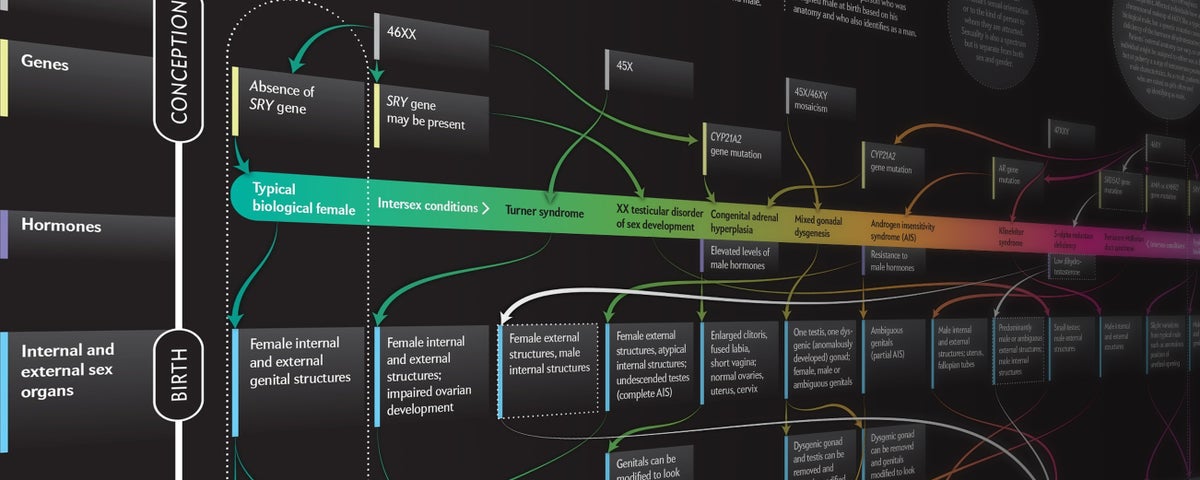You are using an out of date browser. It may not display this or other websites correctly.
You should upgrade or use an alternative browser.
You should upgrade or use an alternative browser.
What to call this thread?
- Thread starter Shiftless2
- Start date
a) Billiards? A "sport"?!"In a sport like pool, I don't see how this could be interpreted in any way other than "I am too scared of losing to attempt winning" #221
b) If it's not an issue where gender differences do not apply, is this acknowledgement that it is an issue where gender differences do apply? Like tennis (a real sport)?
sport
 (spôrt)
(spôrt)n.
1. a. An activity involving physical exertion and skill that is governed by a set of rules or customs and often undertaken competitively.
https://ahdictionary.com/word/search.html?q=sport
Shiftless2
Well-known member
We keep coming back to the obvious - if MtF trans athletes had some sort of advantage they should already have completely dominated the podium. After all, the IOC and the NCAA have both allowed trans athletes to compete for some years (since 2003 and 2010 respectively) but that hasn't happened.b) If it's not an issue where gender differences do not apply, is this acknowledgement that it is an issue where gender differences do apply? Like tennis (a real sport)?
Fact is, since the IOC has created a rule for trans athletes to compete in 2003, over 71,000 people have become Olympians. Out of those 71,000 Olympians a total of 2 have been trans women & one came dead last the other came 37th out of 42.
-"if MtF trans athletes had some sort of advantage they should already have completely dominated the podium" IF such advantage were irrevocably decisive.-"if MtF trans athletes had some sort of advantage they should already have completely dominated the podium." #223
BUT, if a genuinely gifted athlete wins the competition after complete gender reassignment surgery, right or wrong, there may be some that would suspect or wonder whether or not there's a connection.
"While it is important to avoid impropriety, it is also important to avoid the appearance of impropriety." psychologist Joy Browne
The confluence raises a scientific eyebrow.
Has this been studied, quantified? The 71K is fine. But I'm suggesting a more precise measurement of such parameters of athleticism breathing efficiency, etc. measured both before and after gender reassignment?
If so were they the only parameters relevant to the sport?
In the 1950's I occasionally heard "scientifically bumble bees can't fly".
In retrospect I suspect a ham-handed analysis was done, suggesting bumble bees can't soar or glide. Obviously they fly, though the pseudo-scientific assertion that they couldn't persisted.
There are separate issues here.
The issue seemingly prominent here is public relations.
Complicating this further:
any ostensibly sincere scientific attempt to quantify both before and after performance parameters might be vulnerable to suspicion of the athlete consciously or subconsciously favoring one or the other. That's difficult to disprove.
Any data available on sub-group public opinion on it from non-trans athletes? I wouldn't reflexively award their opinion (either way) as an irrevocable rule. But I wouldn't exclude them from the discussion either.
And finally S2, I suspect you recognize, my reason for skepticism / caution is not bigotry, but scientific legitimacy.
Shiftless2
Well-known member

Caster Semenya and the cruel history of contested black femininity
World Athletics’ regulations targeting Caster Semenya are rooted in a long legacy of black bodies being held to white standards.
#225
OK S2,
Some issues are metaphorically "black & white", distinguished vividly. Example: shall we strangle all the frogs? My somewhat controversial position on it: no we should not. Fine.
The issue in #225 may metaphorically qualify as a "grey" area, if you'll indulge me extending the metaphor.
Seems to me in such grey area cases we might benefit from a formalized process.
What criteria would you endorse as determinative? Reproduction viability? Genetic complement (X vs Y)? Individual athlete's personal preference?
OK S2,
Some issues are metaphorically "black & white", distinguished vividly. Example: shall we strangle all the frogs? My somewhat controversial position on it: no we should not. Fine.
The issue in #225 may metaphorically qualify as a "grey" area, if you'll indulge me extending the metaphor.
Seems to me in such grey area cases we might benefit from a formalized process.
What criteria would you endorse as determinative? Reproduction viability? Genetic complement (X vs Y)? Individual athlete's personal preference?
Shiftless2
Well-known member
Reproduction viability doesn't work - that would mean ruling out anyone who can't have children (sterile for some reason, had their tubes tied, whatever).What criteria would you endorse as determinative? Reproduction viability? Genetic complement (X vs Y)? Individual athlete's personal preference?
X vs Y doesn't work either - there are XX men and XY women.
Hormone levels - that's a tough one but we've seen cis women banned because their natural hormone levels were deemed to be "too high"
Other physical anomalies - how about someone whose body produces half the lactic acid that an normal person does? That's Michael Phelps if you didn't know. [In addition to that his arms are too long for his body, his feet are too large, and his joints are overly flexible.]
Shiftless2
Well-known member
Right-Wing ‘Moms for Liberty’ Organizer Is a Convicted Sex Offender
Phillip Fisher Jr., who does faith-based outreach for the group in Philadelphia, abused a 14-year-old in 2011, The Philadelphia Inquirer reported on MondayBY RYAN BORT
MOMS FOR LIBERTY is a conservative parental rights group that has chapters all over the United States working to eradicate LGBTQ-related discussion in public schools, at least partially under the belief that educators are using it to “groom” children for sexual relationships. The group might want to look inward first. The Philadelphia Inquirer reported on Monday that Phillip Fisher Jr. — a pastor, Republican ward leader, and faith coordinator for Moms for Liberty in Philadelphia — is a registered sex offender.
Fisher was convicted in 2012 for aggravated sexual abuse of a 14-year-old boy, with the charging documents saying that Fisher, then 25, engaged and oral and anal sex with the boy. Fisher, who pleaded guilty, told the Inquirer that the conviction was a “railroad job” by a PAC affiliated with Lyndon LaRouche, the cult-y former presidential candidate whose organization Fisher worked for at the time. “It was a political situation that happened between ....

Right-Wing 'Moms for Liberty' Organizer Is a Convicted Sex Offender
Phillip Fisher Jr., who does outreach for Moms for Liberty in Philadelphia, is a convicted sex offender, The Philadelphia Inquirer reported on Monday.
LaRouche's half-hour socio-political infomercials were entertaining, even inadvertently so.Lyndon LaRouche BY RYAN BORT
The description in #228 indicates their intention not to promote Liberty, but to suppress it, to exercise supreme control with it.‘Moms for Liberty’ #228
MfL, NAMBLA, they're all a bunch of dunderheads.
Shiftless2
Well-known member
Sometimes little things aren't so little


Shiftless2
Well-known member
#231
she [reading from biology textbook]: "Gender is not the same as sex. Biological sex refers to the anatomical and physiological phenotype. Gender is a category assigned by the individual based off behaviour and cultural practices. One's gender need not coincide with one's biological sex."
Shiftless2
Well-known member
And biological sex is not binary. (Neither is gender.)
I vaguely recall this discussion from previous."And biological sex is not binary. (Neither is gender.)" S2 233
To me "biological" sex means gametes. And to me gametes mean haploid genetics. I thought that was binary. BUT !
My formal biological education stopped at high school. The rest I've obtained through extracurricular activity.
But I can't imagine why that would matter. If Carol decides s/he wants to live in a style not traditional to Carol's natural born "equipment", fine.
The issue of whether biological sex is binary, OR NOT should have no bearing on Carol's happiness. Merry Christmas Carol.
Each of the following two American Heritage definitions has an active link to its own definition, for authentication / corroboration.
I did not synchronize the 2a of each.
gen·der  (jĕndər) (jĕndər)n. 1. Grammar a. A grammatical category, often designated as male, female, or neuter, used in the classification of nouns, pronouns, adjectives, and, in some languages, verbs that may be arbitrary or based on characteristics such as sex or animacy and that determines agreement with or selection of modifiers, referents, or grammatical forms. b. The fact of being classified as belonging to such a category: agreement in gender, number, and case. 2. a. Either of the two divisions, designated female and male, by which most organisms are classified on the basis of their reproductive organs and functions; sex. b. One's identity as female or male or as neither entirely female nor entirely male. c. Females or males considered as a group: Students lined up with the genders in different lines. tr.v. gen·dered, gen·der·ing, gen·ders [Middle English gendre, from Old French, kind, gender, from Latin genus, gener-; see genə- in the Appendix of Indo-European roots.] gender·less adj. Usage Note: Some people maintain that the word sex should be reserved for reference to the biological aspects of being male or female or to sexual activity, and that the word gender should be used only to refer to sociocultural roles. Accordingly, one would say The effectiveness of the treatment appears to depend on the sex of the patient and In society, gender roles are clearly defined. In some situations this distinction avoids ambiguity, as in gender research, which is clear in a way that sex research is not. The distinction can be problematic, however. Linguistically, there isn't any real difference between gender bias and sex bias, and it may seem contrived to insist that sex is incorrect in this instance. The American Heritage® Dictionary of the English Language, Fifth Edition copyright ©2022 by HarperCollins Publishers. All rights reserved. |
sex  (sĕks) (sĕks)n. 1. a. Sexual activity, especially sexual intercourse: hasn't had sex in months. b. The sexual urge or instinct as it manifests itself in behavior: motivated by sex. 2. a. Either of the two divisions, designated female and male, by which most organisms are classified on the basis of their reproductive organs and functions: How do you determine the sex of a lobster? b. The fact or condition of existing in these two divisions, especially the collection of characteristics that distinguish female and male: the evolution of sex in plants; a study that takes sex into account. See Usage Note at gender. 3. Females or males considered as a group: dormitories that house only one sex. 4. One's identity as either female or male. 5. The genitals. tr.v. sexed, sex·ing, sex·es 1. To determine the sex of (an organism). [Middle English, from Latin sexus.] The American Heritage® Dictionary of the English Language, Fifth Edition copyright ©2022 by HarperCollins Publishers. All rights reserved. |
Shiftless2
Well-known member
The coffee hasn't kicked in yet so I'll limit myself to a couple of comments.
Genetics is far more complicated than the stuff we all learned in grade school (or even high school). And much of that was wrong in any case. [On that topic, I remember one of the senior genetics profs at the university where I did my Masters commenting that much of what he'd been taught in grad school was wrong.]
There are XX men and XY women - fact is, a disproportionate percentage of female models are actually XY. And an XY woman can mature normally, experience menses, become pregnant, and give birth to healthy babies.
As for gender - male and female brains are different and, in some circumstances, to grossly oversimplify someone can be born with a girl brain in a boy body or vice versa.
Genetics is far more complicated than the stuff we all learned in grade school (or even high school). And much of that was wrong in any case. [On that topic, I remember one of the senior genetics profs at the university where I did my Masters commenting that much of what he'd been taught in grad school was wrong.]
There are XX men and XY women - fact is, a disproportionate percentage of female models are actually XY. And an XY woman can mature normally, experience menses, become pregnant, and give birth to healthy babies.
As for gender - male and female brains are different and, in some circumstances, to grossly oversimplify someone can be born with a girl brain in a boy body or vice versa.
That's fine."There are XX men and XY women " S2 #235
- but -
The XX and XY designations remain for now, relatively useful if imperfect genetic indicators.
Your observation quoted above undermines the validity of the "assumption" made of them.
It does not however necessarily refute a binary nature, to a metaphysical certitude, EVEN if the XX and XY markers are not 100% reliable. Perhaps some other as yet unidentified marker is more accurate.
All that aside, we don't need validation for lifestyle preference. Whose business is it, other than the individual?
In my opinion whether it's a binary, or if there are 37, individuals are entitled to both Liberty and respect, equally.
None the less, as a separate issue, I share your interest in the scientific aspect.
... peer review ...The neurotic has suspicions, the psychotic has convictions. psychiatrist Thomas Szasz
"in time, all will be reviled." Wolf 2uk
Shiftless2
Well-known member
The idea of two sexes is simplistic. Biologists now think there is a wider spectrum than that.

Sex redefined - Nature
The idea of two sexes is simplistic. Biologists now think there is a wider spectrum than that.www.nature.com
Biological Science Rejects the Sex Binary, and That’s Good for Humanity
Evidence from various sciences reveals that there are diverse ways of being male, female, or both. An anthropologist argues that embracing these truths will help humans flourish.

Biological Science Rejects the Sex Binary, and That’s Good for Humanity
Science reveals diverse ways of being male, female, or both. An anthropologist argues that embracing this truth will help humans flourish.www.sapiens.org
Visualizing Sex as a Spectrum
Infographic reveals the startling complexity of sex determination

Visualizing Sex as a Spectrum
Infographic reveals the startling complexity of sex determinationblogs.scientificamerican.com
Beyond XX and XY: The Extraordinary Complexity of Sex Determination
A host of factors figure into whether someone is female, male or somewhere in between

Beyond XX and XY: The Extraordinary Complexity of Sex Determination
A host of factors figure into whether someone is female, male or somewhere in betweenwww.scientificamerican.com
Fowl news?
Cluck Off! Albany pols want to boot Chick-fil-A from thruway rest stops
Some [NY] state politicians want fast food chain Chick-fil-A to cross the road and never come back.The pro-LGBT lawmakers are trying to pass a bill that would effectively bar the famous chicken joint — which has gotten criticism for donating to anti-LBGT causes — from New York State Thruway rest stops.

Cluck Off! Albany pols want to boot Chick-fil-A from thruway rest stops
A bill introduced this week would require restaurants operating on the thruway’s 27 rest stops to be open seven days a week. Chick-fil-A is notably closed on Sunday’s.
The New York State "Thruway", aka the "Thomas E. Dewey Thruway" Is a major New York State thoroughfare. It's a limited access highway that includes the Tappan Zee / Mario Cuomo Hudson river bridge crossing.
There are commercial stops along the way for food and fuel (& perhaps now, a quick EV charge).
This is not the first such challenge. Florida / Gov. DeSantis / Disney may have grabbed the headlines in previous news cycles. New York / Albany now announces to the world, sticking up for human rights isn't confined to the peninsula.
Shiftless2
Well-known member
friend  (frĕnd) (frĕnd)n. 1. A person whom one knows, likes, and trusts. 2. A person whom one knows; an acquaintance. 3. A person with whom one is allied in a struggle or cause; a comrade. 4. One who supports, sympathizes with, or patronizes a group, cause, or movement: friends of the clean air movement. 5. Friend A member of the Society of Friends; a Quaker. [Middle English, from Old English frēond; see prī- in the Appendix of Indo-European roots.] Word History: The relationship between Latin amīcus, "friend," and amō, "I love," is clear, as is the relationship between Greek philos, "friend," and phileō, "I love." In English, though, we have to go back a millennium before we see the verb that we can easily connect to friend. Frēond, the Old English source of Modern English friend, is related to the Old English verb frēon, "to love, like, honor, set free (from slavery or confinement)." Specifically, frēond comes from the present participle of the Germanic ancestor of Old English frēon and thus originally meant "one who loves." (The Old English verb frēon, "to love, set free," by the way, survives today in Modern English as to free.) The Germanic root of frēond and frēon is *frī-, which meant "to like, love, be friendly to." Closely linked to these concepts is that of "peace," and in fact Germanic made a noun from this root, *frithu-, meaning exactly that. Ultimately descended from this noun are the personal names Frederick, "peaceful ruler," and Siegfried, "victory peace." The root also shows up in the name of the Germanic deity Frigg, the goddess of love, who lives on today in the word Friday, "day of Frigg," from an ancient translation of Latin Veneris diēs, "day of Venus." The American Heritage® Dictionary of the English Language, Fifth Edition copyright ©2022 by HarperCollins Publishers. All rights reserved. |
O.T.O. !
Dr. Joy Browne explains, disappointment is a function of expectation. Those without expectation cannot be disappointed. Conversely, expectation prepares us for a fall.
BUT: tolerance can be misplaced as well, thus laws against accessory to violent crime, etc.
Comedian "Flip" Wilson provided some constructive insight with his recurring character Geraldine. "Watch it!" S/He was not the first to offer this insight.
Christmas bonus:Eternal vigilance is the price of liberty. - John Philpot Curran (1750-1817)
"Dear Dr. Laura,
Thank you so much for trying to educate people regarding god's law. I have learned a great deal from you, and I try to share that knowledge with as many people as I can.
When someone tries to defend the homosexual lifestyle for example, I simply remind him that Leviticus 18:12 clearly states it to be an abomination. End of debate.
But I need some advice from you, regarding some of the other specific laws and how best to follow them.
When I burn a bull on the altar as a sacrifice, I know it creates a pleasing odor for the lord (Leviticus 1:9), the problem is my neighbors. They claim the odor is not pleasing to them. How should I deal with this?
I would like to sell my daughter into slavery as suggested by Exodus 21:7. What do you think a fair price would be? I know I am allowed no contact with a woman while she is in her period of menstrual uncleanliness (Leviticus 19:24). The problem is, how do I tell? I have tried asking. But some women take offense. I have a neighbor who insists on working on the Sabbath. Exodus 35:2 clearly states he should be put to death. Am I obliged morally to kill him myself, or may I hire a hit-man?
I know you have studied these things extensively, and so I am confident you can help.
Thank you again for reminding us that god's word is eternal, & unchanging."



